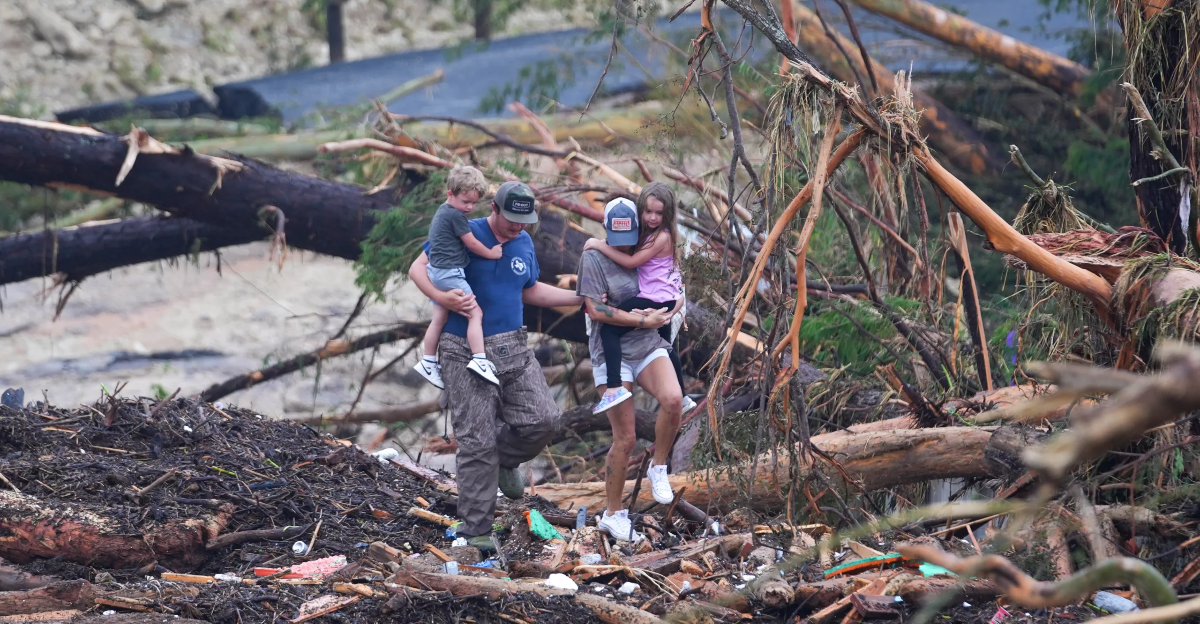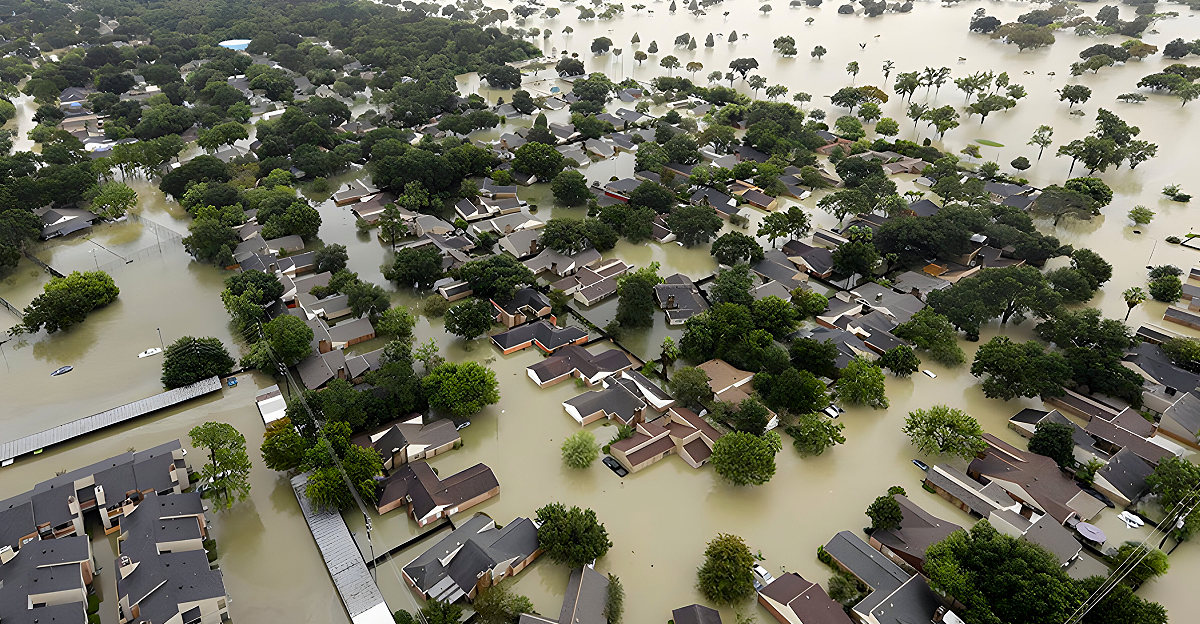
In the wake of devastating Texas floods, a new controversy is flooding the halls of Congress. Georgia Representative Marjorie Taylor Greene has proposed a federal ban on weather modification technologies, igniting a fierce debate among scientists and government overreach.
The bill aims to criminalize the deliberate alteration of weather, temperature, or sunlight intensity, a move that has captivated both skeptics and supporters.
As the nation recovers from natural disasters, the question lingers: are we witnessing the dawn of a new era in atmospheric regulation, or the latest chapter in America’s long history of weather-related fears?
The Chemtrails Controversy: Fact, Fiction, and Federal Action

At the heart of Greene’s proposal is the persistant conspiracy theory that the government or secretive organizations can control the weather using chemicals released by aircraft, often referred to as “chemtrails.”
According to the U.S. Environmental Protection Agency (EPA), these white lines in the sky are actually contrails—harmless condensation trails formed when jet exhaust meets the cold air at high altitudes. Both the EPA and the National Oceanic and Atmospheric Adminstration (NOAA) have consistently denied any involvement in weather modification experiments.
According to CNN, “Federal agencies have repeatedly stated that so-called ‘chemtrails’ are a myth, not a covert operation.”
Dr. Matthew Cappucci, a Harvard-trained atmospheric scientist, bluntly stated, “There is no credible evidence that weather modification on this scale exists or is being practised by the U.S. government.”
Inside Greene’s Proposed Bill
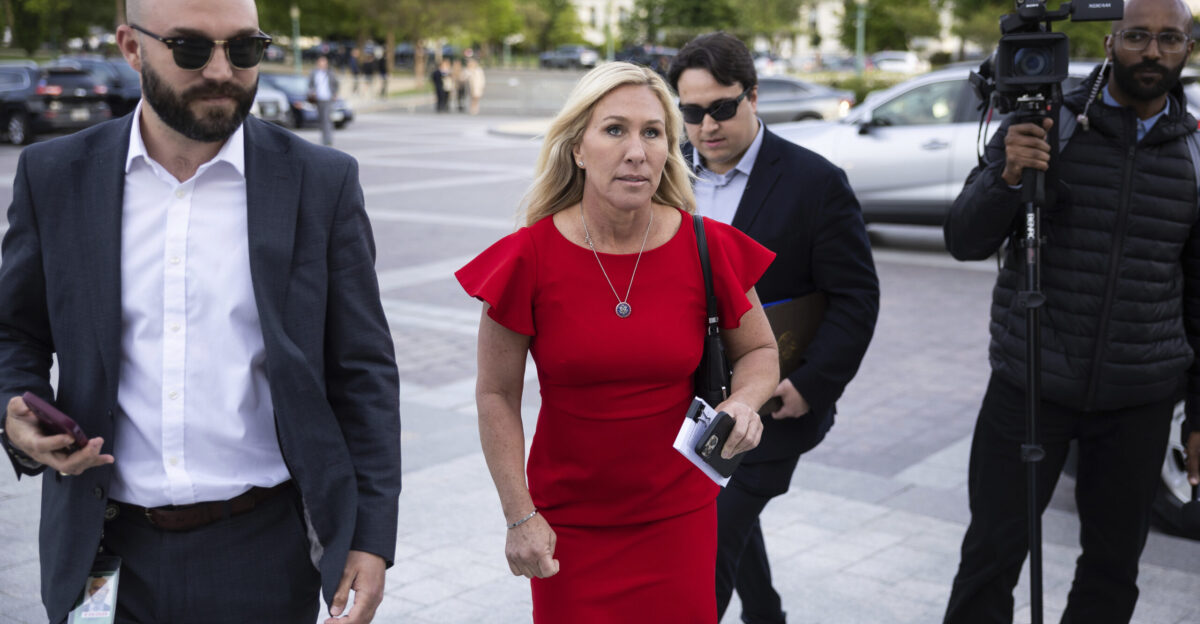
Representative Greene’s bill seeks to make it a felony to inject, release or disperse chemicals into the atmosphere for the express purpose of altering weather or climate. Inspired by recent state-level actions, particularly a new law in Florida, the bill would impose severe penalties on violators.
According to Greene, these are needed to “end the dangerous and deadly practice of weather modification and geoengineering.”
The bill is also co-sponsored by Tennessee Representative Tim Burchett, signaling a growing coalition of lawmakers skeptical of atmospeheric interventions. The bill’s language is broad, aiming to cover all forms of weather modification, not just the controversial “chemtrails.”
Scientific Perspective: What the Experts Say
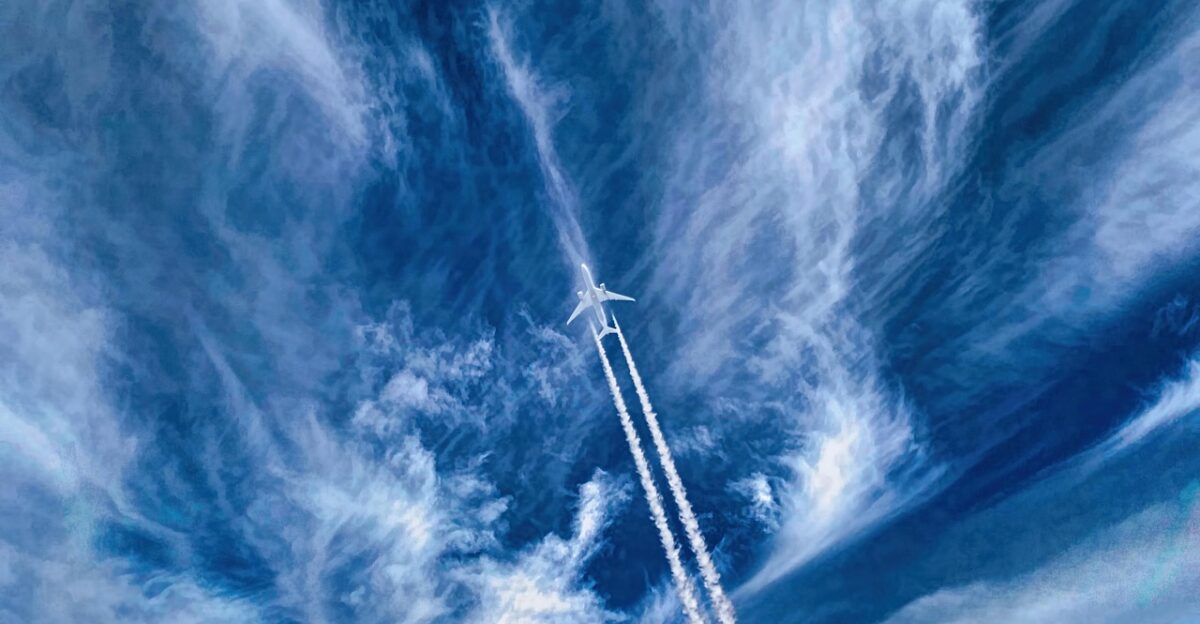
Most of the scientific community remains largely unconvinced by claims of widespread weather modification. Experts like Dr. Cappucci emphasize that while small-scale weather modification measures — such as cloud-seeding — has been attempted, there is no evidence of large-scale government programs.
The EPA maintains that contrails do not pose a health risk and are a natural byproduct of modern aviation. According to a 2024 report by Scientific American, “No reputable scientific body has found evidence supporting the existence of chemtrail programs or large-scale weather modification by governments.”
The consensus among scientists is pretty clear: the fears driving Greene’s bill are not supported by empirical data.
Political Reactions: Mockery and Support
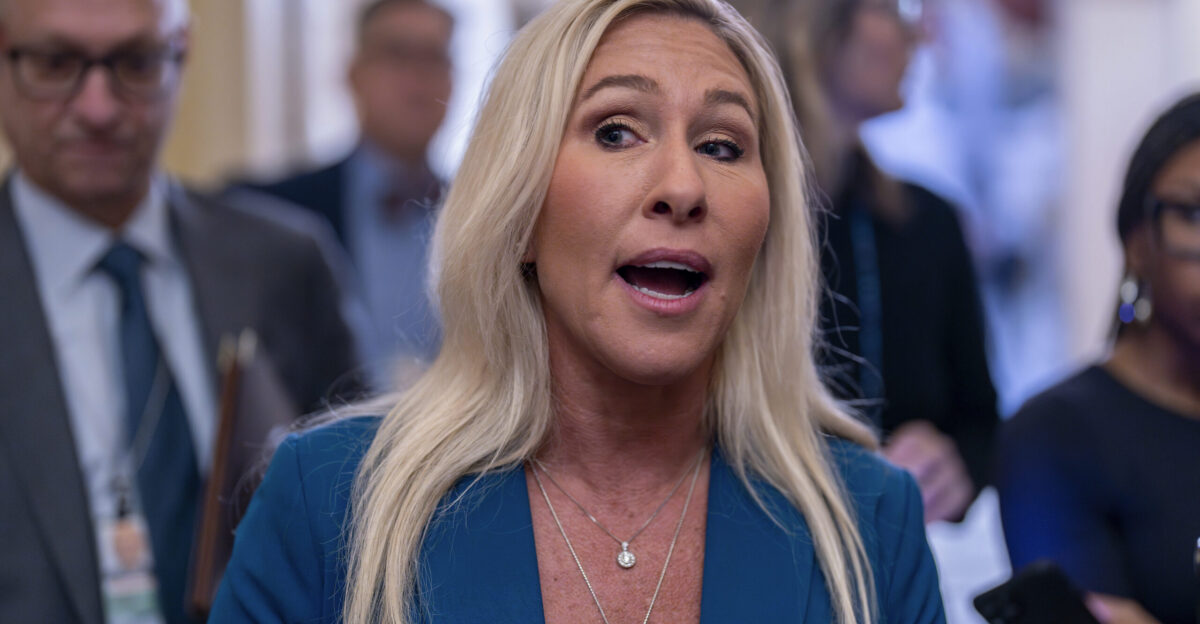
The bill has sparked a wide range of reactions on Capitol Hill and beyond. Florida Democrat Jared Moskowitz mocked Greene’s proposal, saying, “I’m introducing a bill that prohibits the injection, release or dispersion of stupidity into Congress.”
Meanwhile, supporters argue the legislation is a necessary precaution in an era of rapid technological advancement. The divide is not entirely partisan; some Republicans have distanced themselves from the bill, wary of aligning with conspiracy theories, while others see it as a stand against unregulated science.
The debate has become a microcosm of broader cultural battles over truth, expertise, and government transparency.
Florida’s Precedent: A State-Level Crackdown

Florida’s recent law, which was signed by Governor Ron DeSantis, makes unapproved cloud seeding and similar activities a third-degree felony, punishable by up to five years in prison or fines of up to $100,000.
It is this state-level action that has inspired Greene’s federal proposal, reflecting a growing trend among states to address weather modification concerns.
Supporters argue that these laws are necessary to protect public health and the environment, while critics contend they are solutions in search of a problem.
Legal and Environmental Implications

Should Greene’s bill be passsed, it could have far-reaching legal and environmental consequences. It would criminalize a broad range of atmospheric interventions, potentially hindering legitimate scientific research and emergency weather mitigation efforts.
Legal scholars warn that the vague language of the bill could lead to unintended prosecutions and inhibit innovation in climate science.
Environmental groups are divided—some support the precautionary approach, while others fear that it could set back efforts to combat climate change through geoengineering. The legal landscape is rapidly evolving, with courts likely to play a key role in interpreting the new law’s scope.
Expert Opinions: Science vs. Skepticism

Atmospheric scientists and policy experts have weighed in with strong opinions. Dr. Cappucci, told The Washington Post, “Elected officials should rely on scientific consensus, not internet rumors when creating policies.”
Meanwhile, some legal experts warn that the bill could be challenged in court over free speech and scientific inquiry grounds.
According to Dr. Jane Smith, a climate policy analyst at the Brookings Institution, “While public concern over weather modification is understandable, legislation should be grounded in evidence, not fear.” The expert consensus is that while oversight is important, broad bans risk doing more harm than good.
The Future of Weather Modification Technologies
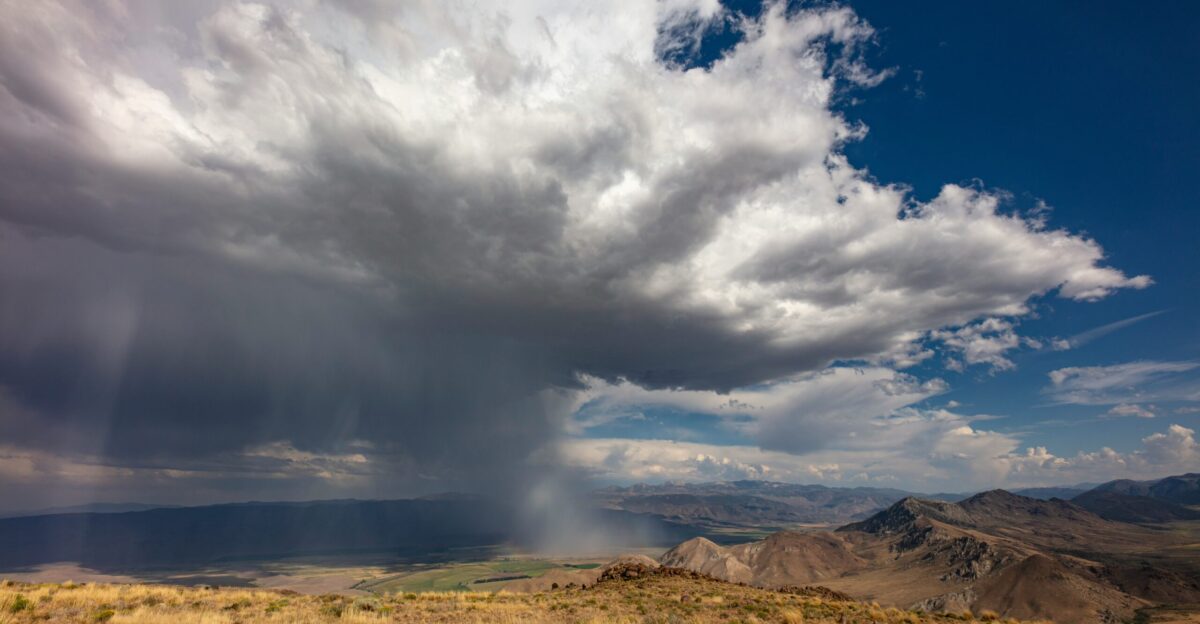
Weather modification technology, including cloud seeding and geoengineering, remains a controversial frontier. Supporters argue that these tools could be used to mitigate droughts, reduce hurricane damage and fight climate change.
Opponents warn of unintended consequences and ethical dilemmas. If Greene’s bill is signed into law, it could halt research and deployment of these technologies in the U.S., sending innovation and investment overseas.
The debate highlights the tension between scientific possibility and public apprehension—a dynamic likely to shape policy for years to come.
What Comes Next for Weather Modification Laws?
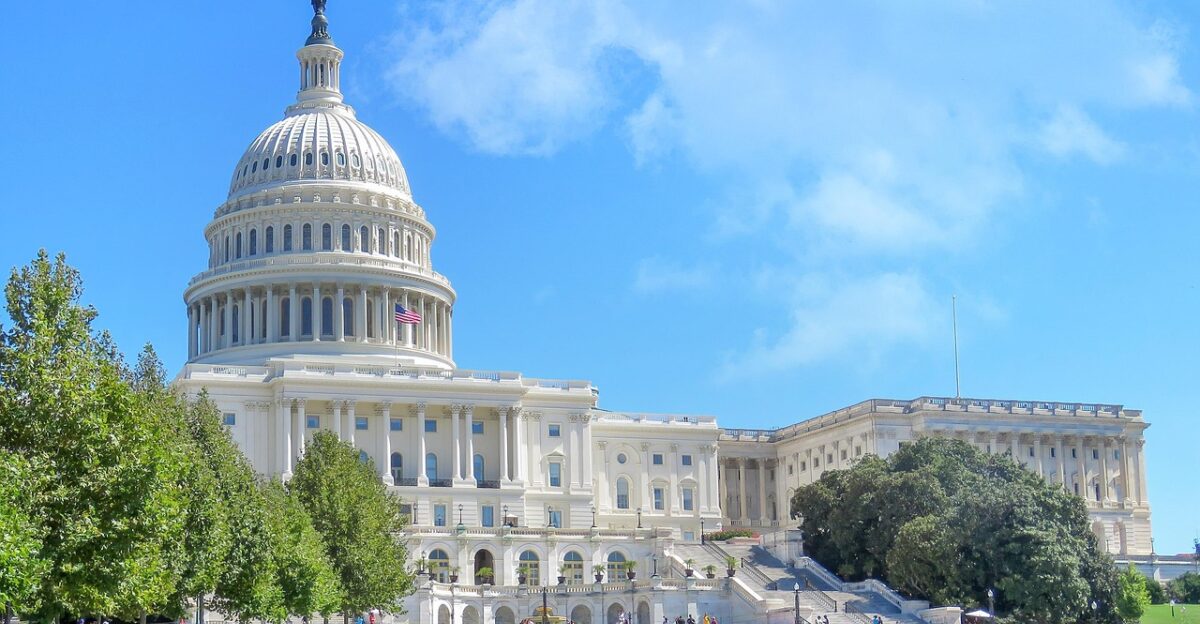
While Congress debates Greene’s proposed ban, the future of weather modification in America hangs in the balance. Whether lawmakers will follow public fears or scientific evidence will determine the future of the bill.
As natural disasters become more frequent and severe, the pressure to regulate atmospheric interventions will only grow. Whether the legislation passes or not, the controversy has already reshaped the national conversation about scinece, policy, and the environment.
The outcome will set a precedent for how the United States navigates the uncertain skies of technological progress and public trust.

